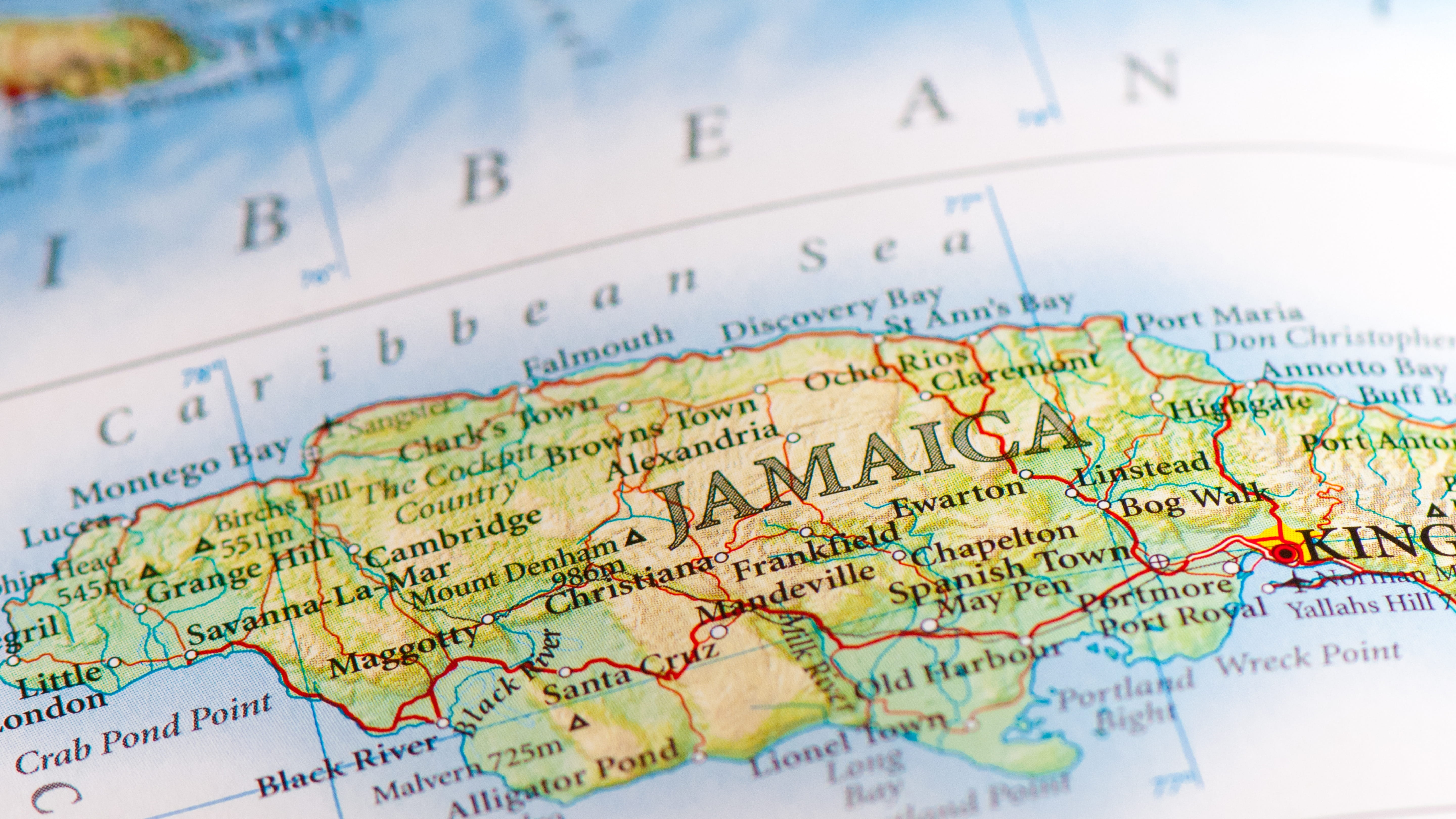Security Deposits for Car Rentals: Everything You Need to Know
September 28th 2024
If you're just about to rent a car for a road trip or business purpose, understanding security deposits for car rentals is essential to avoid surprises and manage your travel budget effectively.
In this guide, I’ll explain everything you need about security deposits for car rentals as a foreigner. This article is designed to answer all your burning questions, from how much they might cost to tips on avoiding unnecessary charges.
What is Car Rentals Security Deposit for?
Companies often require a security deposit when renting a car as insurance in case of damage, theft, or unpaid fees. This deposit is typically held on your credit card for the duration of your rental. The full deposit will be released if the car is returned in good condition and all terms are followed. However, if there is damage to the rental vehicle or other issues, a portion or all of the deposit may be retained.
For example, if you're renting an economy car, the company might place a $300 security deposit hold on your credit card. This amount isn't charged immediately but is temporarily blocked, so you can't use it during the rental period. When you return the car in the condition you picked and follow the terms of the agreement (like returning it on time and with a full gas tank), the deposit is returned to your card.
How Much Does a Security Deposit for Car Rentals Cost?
The amount of the security deposit for car rental varies depending on several factors:
- The car rental company
- The type of car you rent
- The country you’re renting in
- The insurance coverage you choose
On average, security deposits range between $200 and $3,000, depending on these factors. For instance:
- Economy cars might require a deposit of around $200 to $500.
- Luxury vehicles or SUVs can have deposits as high as $1,000 to $3,000.
It’s important to note that this amount is temporarily blocked on your credit card, meaning it’s not immediately charged, but it reduces your available credit until the hold is released. Some companies also allow debit card deposits, but the amount may be higher.
Why Do Rental Companies Charge a Security Deposit?
Rental companies charge a security deposit to protect their assets. The deposit covers the following:
- Potential damages to the vehicle, including minor scratches, dents, or accidents.
- Late return fees if you don’t bring the car back on time.
- Traffic fines or tolls you incur during your rental period.
- Fuel charges if you return the vehicle with less fuel than agreed upon.
By holding a deposit, rental companies ensure that they have a fallback in case the vehicle isn’t returned in the same condition.
Do You Need to Leave a Rental Car Security Deposit If You Purchase Full Coverage?
If you purchase full coverage insurance when renting a car, you may not need to leave a security deposit, or the amount could be significantly reduced. Full coverage typically protects the rental car from damage, theft, and other liabilities, lowering the rental company's risk.
For example, a security deposit for a standard car without full coverage might be $500. However, if you opt for full coverage, the company may waive the deposit entirely or reduce it to a minor hold, like $100. Always check with the rental company, as policies can vary depending on the location and provider.
Why Do Rental Cars Require a Credit Card for Security Deposit?
Rental car companies require a credit card for the security deposit to ensure they have a reliable method to cover any potential costs that might arise during the rental period, such as damage, theft, fuel charges, or late returns. Credit cards provide the company with a secure way to "hold" the deposit amount without actually charging it unless necessary.
For example, if you rent a car and there's a $300 security deposit, the rental company will place a hold on that amount on your credit card. This doesn't affect your balance immediately but ensures they can charge you if any issues occur. Credit cards are preferred because they offer faster holds and releases, more secure transactions, and better protection for the company and the renter than debit cards or cash.
How to Minimize or Avoid Large Car Rental Security Deposits?
Some travelers may feel anxious about large deposits, especially if they tie up their credit. Fortunately, there are ways to minimize or avoid paying hefty security deposits:
Opt for Full Insurance Coverage: Many rental companies offer full insurance that reduces the deposit amount. Although it may increase your rental cost slightly, it provides peace of mind.
Use a Credit Card with Car Rental Insurance: Some credit cards offer rental car insurance as a perk, which can reduce or eliminate the need for a large deposit.
Rent from Companies with Lower Deposit Requirements: Some local or budget rental companies may offer lower deposit rates, so it’s worth researching before booking.
In my experience, opting for full coverage insurance when renting a car abroad was a game-changer. Although it added a bit to my upfront cost, it significantly lowered the security deposit, making the rental experience much smoother.
Knowing the security deposit policies in your destination can help you budget better for your trip. Always ask for this information in advance to avoid unexpected costs.
How Long Does It Take to Get Your Rental Car Security Deposit Back?
One of the most common concerns is how long it takes to get your security deposit back. The rental company usually releases the deposit within 7 to 10 business days after the rental car is returned, provided there’s no damage or outstanding fees.
However, some banks may take longer to process the release. If you’re using a debit card, the funds may take up to 30 days to be released. Always check with your bank to understand their processing times.
What Should You Do If Your Car Rental Security Deposit Refund Is Delayed?
Review the Rental Agreement
Start by checking your rental agreement for the specific terms regarding the security deposit refund. This document should outline the expected timeframe for refunds and any conditions that could affect the return of your deposit.
Allow Sufficient Time
Typically, refunds for security deposits can take 5 to 15 business days to process, depending on the rental company and your payment method. If it has been less than this period, it may simply be a matter of waiting for the bank to process the transaction.
Contact Your Bank or Credit Card Company
If the expected timeframe has passed, contact your bank or credit card company first. They may be able to provide information on whether the rental company initiated the refund and if any holds on your account could be causing delays.
Reach Out to the Rental Company
If your bank indicates that the rental company has not processed your transaction, contact them directly. Provide them with details such as your rental agreement number and the date you returned the vehicle. Be polite but firm in requesting an update on your refund status.
Document Everything
Keep records of all communications with both your bank and the rental company. This includes dates, times, and names of representatives you spoke with, as well as any reference numbers provided. Documentation can be crucial if you need to escalate the issue later.
Send a Formal Request
If informal communication does not yield results, consider sending a formal written request for your deposit refund. Include a deadline for their response (e.g., within 7 days) and send it via a method that provides proof of delivery (like certified mail). This shows seriousness about your claim.
Consider Filing a Dispute
If you still haven't received your deposit after following up, you may have grounds to file a dispute with your credit card company under Section 75 of the Consumer Credit Act (if applicable). This can help recover funds if the rental company fails to respond or refuses to return your deposit.
Explore Small Claims Court
As a last resort, if all else fails and you believe you are entitled to your deposit back, consider pursuing a small claims court action against the rental company for breach of contract. Ensure you have all necessary documentation ready to support your claim.
By following these steps, you can effectively address delays in receiving your car rental security deposit refund and increase your chances of resolving the issue favorably.
Tips for Managing Car Hire Security Deposits
Handling security deposits doesn’t have to be stressful. Here are a few essential tips to make the process smoother:
Thoroughly Inspect the Car Before Renting
Before driving away, carefully inspect the vehicle for any pre-existing damage. Check the exterior for scratches, dents, or paint chips and the interior for stains, tears, or unusual smells. Document everything by taking clear photos or videos and pointing out any damage to the rental agent. This ensures you’re not liable for damages already there when renting the car.
Choose the Right Insurance Coverage
One of the easiest ways to protect your deposit is by opting for the right level of insurance. Consider purchasing full coverage or a damage waiver from the rental company. These options often reduce or eliminate your financial responsibility for damage, meaning the rental company is less likely to retain any part of your deposit. While full coverage costs extra, it can be worth it if you drive in unfamiliar or challenging areas, such as off-road or busy cities.
Return the Car on Time
Late returns can lead to additional fees that may be deducted from your deposit. Always return the car on or before the agreed time. If you’re running late, call the rental company and ask about extending the rental period to avoid surprise charges.
Refuel the Car Before Returning
Many rental companies require you to return the car with a full fuel tank. If you don’t, they may charge you for refueling at a much higher rate than local gas stations, which could come directly from your deposit. Always refuel the car close to the drop-off location and keep the receipt as proof.
Keep the Car Clean
Returning the car in the same condition as when you picked it up is crucial. Clean out any trash, food wrappers, or dirt, and avoid smoking in the vehicle (if prohibited). Some companies may charge cleaning fees for excessively dirty cars, which could be deducted from your deposit.
Drive Safely and Avoid Accidents
The simplest way to protect your deposit is to take care of the car during your rental. Drive carefully, obey speed limits, and avoid risky driving situations. Any damage, even minor scratches or dents, can result in a deduction from your deposit.
Follow the Rental Agreement Terms
Carefully read the terms of the rental agreement to ensure you understand your responsibilities. For example, some rental companies don’t allow cars to be driven across borders or on certain roads. Violating these rules could lead to hefty fines or charges against your deposit.
Return the Car During Business Hours
Returning the car during business hours allows you to inspect it with the rental agent. This ensures you agree on the car’s condition and minimizes the risk of surprise charges after the fact. If you must return the vehicle outside business hours, document its condition with photos or videos.
Keep All Receipts and Documentation
After returning the car, keep a record of all receipts, including for fuel and any toll payments. In case there’s a dispute about charges or deposit deductions, these documents will help support your claim.
Choose a Reputable Rental Company
Lastly, renting from a reputable company with transparent policies is one of the best ways to protect your deposit. Well-known rental agencies often have clearer, more consistent procedures for handling deposits and refunds, giving you peace of mind that your deposit will be returned promptly as long as you follow the rules.
Final Thoughts on Security Deposits for Car Rentals
Understanding security deposits for car rentals is crucial for any foreign traveler renting a vehicle abroad. These deposits protect rental companies but can also cause frustration if you’re unprepared.
At Finalrentals, we understand that navigating car rental security deposits can sometimes feel overwhelming, especially when renting in a foreign country. That's why we aim to make your car rental experience as simple and transparent as possible.
Explore our range of rental vehicles in over 30 countries and book your ideal car today with Finalrentals—your trusted partner for car rentals worldwide.

































































